The Lotus Structure
The breathtaking main temple with 27 free-standing marble petals arranged in clusters of three to form nine sides, creating a mesmerizing optical effect.
Read More
The Lotus Temple, officially known as the Bahá'í House of Worship, is one of Delhi’s most iconic landmarks and a symbol of peace and unity. Completed in 1986 and designed by Iranian-American architect Fariborz Sahba, the temple is renowned for its stunning lotus-like design, featuring 27 white marble petals arranged in clusters to form a flower. Set amidst beautifully landscaped gardens and nine reflecting pools, the temple offers a serene escape from the bustle of the city. True to Bahá'í principles, it welcomes people of all religions, races, and backgrounds, promoting meditation, spiritual reflection, and universal harmony. No rituals, sermons, or religious symbols are used inside the temple, emphasizing silence and inclusivity. With over 10,000 visitors a day, the Lotus Temple stands as a modern architectural marvel and a global symbol of unity, peace, and spiritual openness.



The breathtaking main temple with 27 free-standing marble petals arranged in clusters of three to form nine sides, creating a mesmerizing optical effect.
Read More
The central hall accommodating 2,500 people in perfect silence, with natural light filtering through the marble petals creating an ethereal atmosphere.
Read More
Exhibits detailing the history, principles of the Bahá'í faith, and the architectural significance of the building.
Read More
Nine surrounding pools and meticulously maintained gardens representing the floating lotus, perfect for quiet reflection.
Read MoreA visit to the Lotus Temple offers a peaceful and enriching experience. Step inside the grand prayer hall to experience profound silence and spiritual calm, regardless of your faith. Wander through the beautifully maintained gardens, perfect for reflection and relaxation. Learn about the Bahá'í faith’s inclusive philosophy through exhibitions and information centers. Photography enthusiasts can capture the stunning lotus-shaped architecture as natural light shifts across its marble surface throughout the day. Occasionally, visitors may enjoy serene musical performances that echo the temple’s tranquil energy. The overall ambiance provides a welcome escape from the fast-paced rhythm of Delhi.

While the temple complex has a small bookshop selling literature on the Bahá'í faith, more extensive shopping is available at nearby Kalkaji and Greater Kailash markets. ISKCON Temple market offers spiritual items, while Greater Kailash M-Block market (3 km away) features designer boutiques, handicrafts, and contemporary Indian fashion.
The immediate area offers limited dining options, mostly vegetarian cafes serving simple refreshments. For more substantial meals, nearby Greater Kailash and Nehru Place markets offer diverse cuisine options. Nightlife is minimal around the temple as it's primarily a spiritual destination, but visitors can explore nearby marketplaces for evening dining in a safe, family-friendly environment.
The Lotus Temple is easily accessible via multiple transportation options. The nearest metro stations are Kalkaji Mandir (Violet Line) and Nehru Place, both a short walk or auto‑rickshaw ride away. Auto‑rickshaws, taxis, and app‑based cabs are readily available near the entrance. Ample on‑site parking is available for private vehicles. The temple and its grounds are well-lit, patrolled by security personnel, and generally very safe for visitors of all ages. Basic precautions—such as keeping an eye on belongings, avoiding isolated spots after dark, and staying hydrated—will ensure a comfortable and secure visit.


